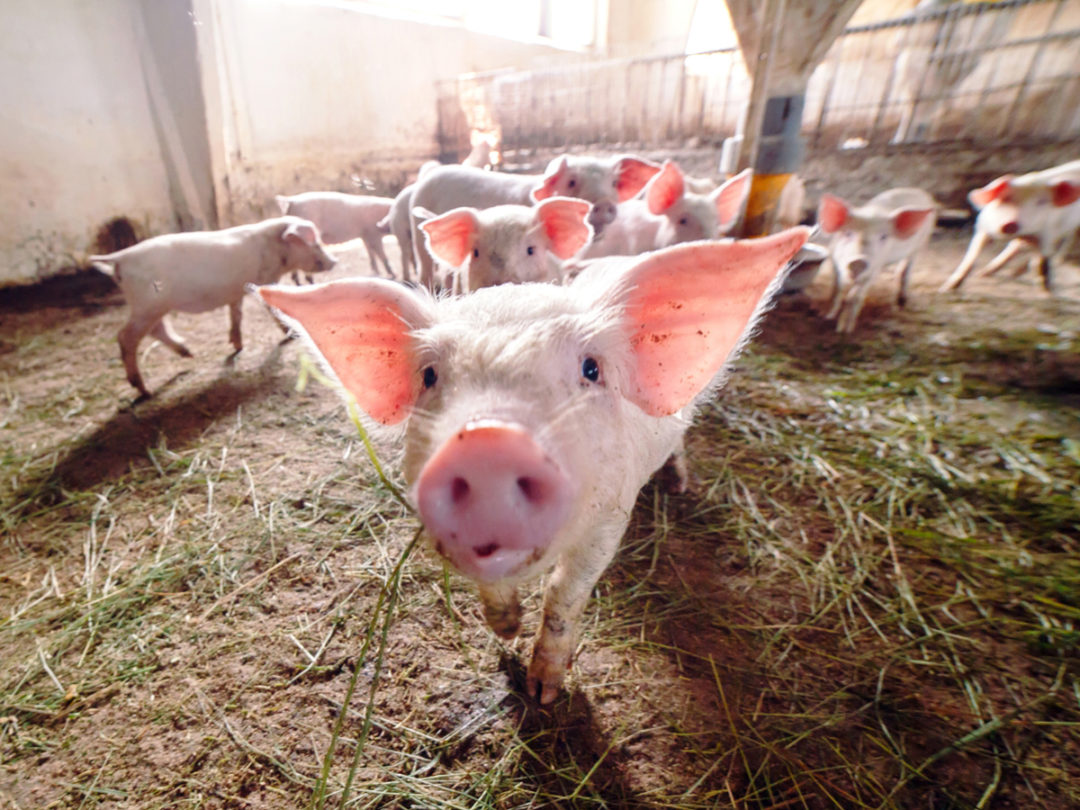
Visit Our Sponsors |
|
|
|
|
|
|
|
|
|
|
|
|
|
|
|
|
|
|
|
|
|
|
|
|
|
|
|
|
|
|
|
|
|
|
|
|
|
|

A Chinese outbreak of African swine fever that has killed millions of pigs in the country has also led to falling U.S. supplies of a widely used drug derived from the animals, the anti-clotting drug heparin.
Heparin’s active ingredient is derived from pig intestines. It’s a critical drug for heart attack patients and is used in surgery to stop clots. Much of the world’s supply of active pharmaceutical ingredient, or API, for the blood thinner comes from China, a byproduct of the nation’s massive pork consumption.
One major producer of heparin, a subsidiary of Germany’s Fresenius SE, said it has started limiting allocations of the drug “due to a potential shortage of raw ingredients,” according to the American Society of Health-System Pharmacists, a trade organization that tracks drug shortages.
“We source from multiple suppliers and geographies to serve our customers, but the situation in China is expected to cause API supply constraints globally for an unknown period,” Fresenius Kabi said in a July letter posted by the pharmacist group.
Supply Available
The U.S. Food and Drug Administration, which tracks and officially declares product shortfalls, said that while there were shortages of some heparin products, there was sufficient overall supply.
“FDA has been monitoring this issue since last year and has followed up with heparin suppliers,” Nathan Arnold, a spokesman for the agency, said in an email Friday. “Although certain presentations of heparin have been in shortage, the overall supply continues to meet demand.”
The global drug supply chain relies on raw ingredients made around the world and shipped to drugmakers and finishers in other countries. That complex system has created challenges for regulators and health-care system reliant on far-flung economies to provide ingredients and medicine.
China has lost as many as 150 million to 200 million animals to the contagious and deadly disease, according to one estimate, a dire example of how problems can ripple around the world.
The FDA has listed two companies, Baxter International Inc. and Pfizer Inc.’s Hospira, that have shortages of heparin going back to November 2017. The agency hasn’t declared an official shortage of Fresenius’s product, though the pharmacists group often sends notice of a shortage before the FDA officially declares one.
Pfizer and Baxter haven’t said whether their shortages have been exacerbated by the situation in China, and didn’t immediately respond to requests for comment. Baxter has previously blamed its shortage on hurricane damage in Puerto Rico, where it has manufacturing.
The Fresenius subsidiary, Fresenius Kabi, “has seen a significant increase in demand for certain heparin presentations as other manufacturers have experienced supply interruptions,” Matthew Kuhn, a company spokesman, said in an email.
Fresenius Kabi sources most of its heparin active ingredient outside of Asia, including in Europe and South America, Kuhn said. He also said the FDA has recently approved additional manufacturing space at one of the company’s U.S. plants to help mitigate a shortage.
Prior Crisis
The ongoing heparin shortage carries echoes of a crisis more than a decade ago, when tainted raw materials for heparin made their way into the U.S. drug supply. The contamination resulted in the deaths of more than 200 patients, and a congressional committee has raised concerns that shortages could lead suppliers to cut corners again, putting patients at risk.
The FDA found during a 2008 inspection of Baxter’s supplier in Changzhou, China, that it hadn’t established a process to remove impurities and had used crude heparin material from a supplier it had previously deemed unacceptable.
The heparin crisis led U.S. lawmakers to boost the FDA’s ability to inspect foreign drugmakers. The House Energy and Commerce Committee investigated and held hearings on the contaminated blood thinner. Representatives Frank Pallone and Greg Walden, the chairman and top Republican on the panel respectively, wrote the FDA in July about the potential for a shortage linked to China’s swine fever outbreak..
Pharmaceutical researchers are concerned the outbreak could cause an “unprecedented shortage,” Pallone and Walden wrote last month to Acting FDA Commissioner Ned Sharpless.
In 2018, the FDA encouraged development of heparin using cow lungs instead of pigs. Heparin manufacturers used bovine materials up until the 1990s but stopped given concerns over mad cow disease.
“The FDA has been in contact with several companies, both domestic and foreign, regarding reintroduction of bovine heparin to the U.S. market,” Arnold, the FDA spokesman, said. “The details of those conversations are confidential.”
RELATED CONTENT
RELATED VIDEOS
Timely, incisive articles delivered directly to your inbox.

